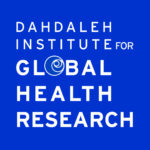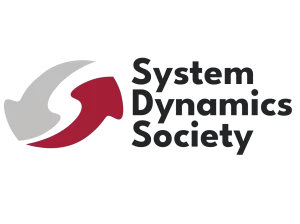Publications
Evidence summary and briefs
How can we prevent the next global pandemic?
York University, 2024
Recent epidemics and pandemics, such as Ebola and COVID-19 have emerged zoonotic spillover events, which is the transmission of pathogens from animals to people. These events are increasing as human activities expand into wildlife habitats. A One Health approach to deep prevention approach focuses on preventing outbreak of disease rather than spread. This evidence summary synthesizes findings across the project, providing key findings and recommendations on how to support One Health approaches to deep prevention.
Read the evidence summary here.
Content and design: Tarra Penney Kirsten Lee
Wildlife trade governance for pandemic prevention
York University, 2024
International and domestic responses to pandemics have primarily been reactionary, focused on outbreak detection, containment, and control measures. However, we also need to prevent future pandemics from occurring to promote human, animal, and environmental health. A deep prevention approach would aim to prevent outbreak of zoonotic disease from animals to humans. This evidence brief provides a summary of findings and recommendations about governance of pandemic prevention from an institutional perspective.
Read the evidence brief here.
Content and design: Mary Wiktorowicz Kirsten Lee
Dynamics of zoonotic spillover
York University, 2024
Many of our recent epidemics and pandemics are the result of what is called a zoonotic spillover event: the transmission of a pathogen from wildlife and livestock to people. Intervening to reduce the risk of zoonotic spillover is challenging, involving a complex array of social, ecological, economic and political factors. This evidence brief provides a summary of findings and recommendations about the system dynamics of zoonotic spillover, focusing on three case countries: China, Democratic Republic of Congo, and the Philippines.
Read the evidence brief here.
Content and design: Chloe Clifford Astbury Kirsten Lee
Peer-reviewed
Public awareness of One Health in China
One Health, 2023
Successfully implementing the One Health approach in policy will require active engagement from the public, which begs the question: how aware is the public of One Health? In this study, we examine the level and distribution of One Health awareness among the general public in China using a survey conducted in Beijing (n = 1820). Being aware of the term is associated with higher recognition of the core ideas. Policymakers and health practitioners should consider these findings when designing public awareness campaigns and educational initiatives to promote One Health principles.
Read the paper here.
Lead and corresponding author: Cary Wu
Policies to prevent zoonotic spillover: a systematic scoping review of evaluative evidence
Globalization and Health, 2023
This review outlines the state of the evaluative evidence around policies to prevent zoonotic spillover in order to guide policy decision-making and focus research efforts. Since we found that most of the existing policy evaluations target ‘downstream’ determinants, additional research could focus on evaluating policies targeting ‘upstream’ determinants of zoonotic spillover, such as land use change, and policies impacting infection intensity and pathogen shedding in animal populations, such as those targeting animal welfare.
Read the paper here.
Lead author: Chloe Clifford Astbury – Corresponding author: Tarra Penney
Carving the meat at the joint: The role of defining how animals are viewed and treated in the governance of (re-)emergent pandemic zoonoses in international law
Law & Policy, 2023
We develop a descriptive conceptual taxonomy to elucidate and map out how the status and evaluative stance taken toward animals can lead to shaping human-animal relationships by structuring the nature of their interactions and disposes us to adopt governance approaches that seek to regulate human–animal relationships in particular ways. This paper concludes by highlighting some implications surrounding the fragmented conceptualization and practice around how animals are viewed and treated for the future of international legal governance of pandemic zoonoses.
Read the paper here.
Lead and corresponding author: Adrian M. Viens
Global governance for pandemic prevention and the wildlife trade
The Lancet Planetary Health, 2023
We consider the current institutional landscape for pandemic prevention in light of ongoing negotiations of a so-called pandemic treaty and how prevention of zoonotic spillovers from the wildlife trade for human consumption could be incorporated. We argue that such an institutional arrangement should be explicit about zoonotic spillover prevention and focus on improving coordination across four policy domains, namely public health, biodiversity conservation, food security, and trade. We posit that this pandemic treaty should include four interacting goals in relation to prevention of zoonotic spillovers from the wildlife trade for human consumption: risk understanding, risk assessment, risk reduction, and enabling funding.
Read the paper here.
Lead and corresponding author: Ed Gallo-Cajiao
Policies to prevent zoonotic spillover: protocol for a systematic scoping review of evaluative evidence
BMJ Open, 2022
The aim of this review is to identify evaluations of public policies that target the determinants of zoonotic spillover, examining approaches taken to evaluation, choice of outcomes measures and evidence of effectiveness.
Read the paper here.
Lead author: Chloe Clifford Astbury – Corresponding author: Tarra Penney
Learning from over ten years of implementing the One Health approach in the Democratic Republic of Congo: a qualitative study
One Health, paper in press.
Lead and corresponding author: Marc Yambayamba
Presentations

Pandemic prevention and wildlife governance: a systems analysis in China, the Philippines and the DRC
Poster presentation at Geneva Health Forum, 2024
Policy and governance that impacts wildlife may therefore impact emerging zoonoses. In this study, we aimed to understand the complex dynamics and system adaptation driving spillover events of wildlife origin in three case study countries: China, the Philippines and the Democratic Republic of the Congo (DRC).
View the event here.
Presenter: Tarra Penney

One Health and pandemic prevention in practice: Is the global south leading innovation?
Oral at Geneva Health Forum, 2024
A ‘deep prevention’ approach, focused on looking upstream at dynamics within animal populations and ecosystems, may reduce the risk of spillover events. Wildlife are a key source of pathogens involved in zoonotic spillover. Policy and governance that impacts wildlife may therefore impact emerging zoonoses. A One Health perspective may be useful in this context, emphasising collaboration across sectors and governance levels and coordinated policy action. In this study, we aimed to understand the global governance network focused on wildlife and emerging zoonoses, as well as identifying complex dynamics and system adaptation driving spillover events of wildlife origin in three case study countries: China, the Philippines and the Democratic Republic of the Congo (DRC).
View the event here.
Presenter: Chloe Clifford Astbury

Public Awareness of One Health
Invited presentation at Dahdaleh Institute for Global Health Research, 2023
One Health is recognized as an increasingly important approach to global health. It has the potential to inform interventions and governance approaches to prevent future pandemics. Successfully implementing the One Health approach in policy will require active engagement from the public, which begs the question: how aware is the public of One Health?
View the recording here.
Presenter: Cary Wu

Food Systems and Zoonotic Disease: Mapping the role of wildlife in China, the Philippines and the Democratic Republic of Congo using causal loop diagrams
Oral presentation at International System Dynamics Conference, 2023
Understanding the underlying structure of the system driving zoonotic spillover events is key to effective intervention. The aims of the study were: to map the system driving increasing incidence of spillover of zoonotic pathogens from wildlife to humans; to identify examples of archetypal system behaviour driving this increasing incidence; and to generate hypotheses around the potential consequences, both intended and unintended, of policy interventions on zoonotic spillover events as well as food systems and their outcomes, including nutrition, livelihoods, food security and food culture.
Presenter: Chloe Clifford Astbury

Food system policies to prevent the spillover of zoonotic diseases: a systematic scoping review of evaluative evidence
Oral presentation at Global Food Governance Conference, 2021
The aim of this review was to identify evaluations of food system policies that target the determinants of zoonotic spillover, synthesising methodological approaches, outcome measures to evaluate the policies, and evidence of effectiveness. Our approach to identifying and analysing the literature was informed by a preventive medicine perspective and a One Health lens, acknowledging the inter-connectedness of human, animal and environmental health.
Presenter: Chloe Clifford Astbury

Evaluating policies and governance that reduce risk of zoonotic spillover
International Policy Ideas Challenge – 2022 Challenge Winner
The work focuses on the application of systems modelling to food system policy for the prevention of both communicable and non-communicable diseases
Read more here.
Presenter: Chloe Clifford Astbury

Policies to prevent the spillover of zoonotic diseases: protocol and preliminary results from a systematic scoping review of evaluative evidence
Oral presentation at International Public Policy Association, 2021
The aim of this review was to identify evaluations of policies that target the determinants of zoonotic spillover. Our approach to identifying and analysing the literature was informed by a preventive medicine perspective and a One Health lens, acknowledging the inter-connectedness of human, animal and environmental health.
Presenter: Chloe Clifford Astbury

Global governance and pandemic prevention: the role of policy, law and systems
Panel at International Public Policy Association, 2021
How have global or national governance approaches addressed pandemic prevention at the population level? How have these approaches been informed by evidence and considered the inherent complexities related to policy, law and/or systems?
This session aims to showcase examples from recent empirical or theoretical approaches to global or national governance related to the prevention of pandemics. Specifically, efforts that have addressed the complexity of policy, law and systems and those that have considered intended and unintended consequence toward the health of populations will be highlighted.
Read the abstract here.
Presenter: Tarra Penney

Advancing policy solutions for pandemic prevention: A multi-disciplinary evaluation of the governance of wildlife systems
Poster at Consortium of Universities for Global Health, 2021
The empirical evidence and knowledge generated will be integrated into a report and set of policy recommendations that will inform the development of a policy design and implementation toolkit for international organizations, national and local stakeholders who will be engaged throughout the research process. The broad purpose of this project is to evaluate the governance gap in stewardship of international wildlife trade and implications for food and health security by analyzing the intersection of global biodiversity, environmental, agricultural and public health governance systems.
Presenter: Tarra Penney


Evaluating the Governance of Emergent Pandemic Zoonoses: A systems and legal analysis of wildlife markets
Invited presentation at Dahdaleh Institute for Global Health Research and Global 1Health Network, 2020
Although mitigating the current pandemic is critically important, a governance response is needed to prevent future pandemics. We need actionable evidence that focuses on the regulation of wildlife trade from which SARS and SARS-Cov2 are believed to have emerged. Specifically understanding the social, legal and cultural dynamics that affect the regulation of wildlife markets in countries where zoonotic epidemics and pandemics emerged, including China, the Democratic Republic of the Congo and the Philippines.
Presenter: Tarra Penney







